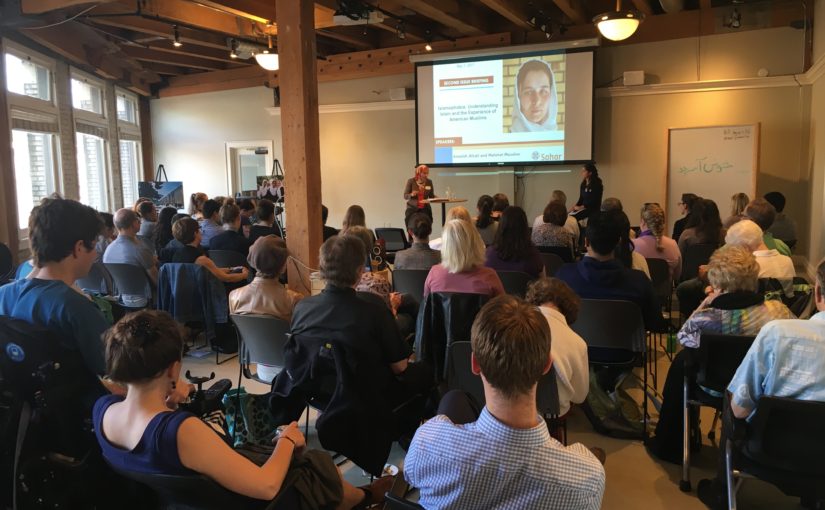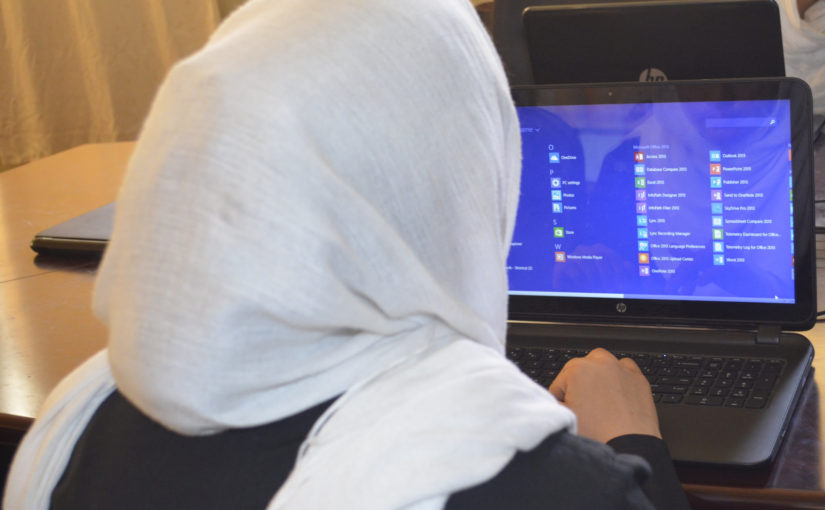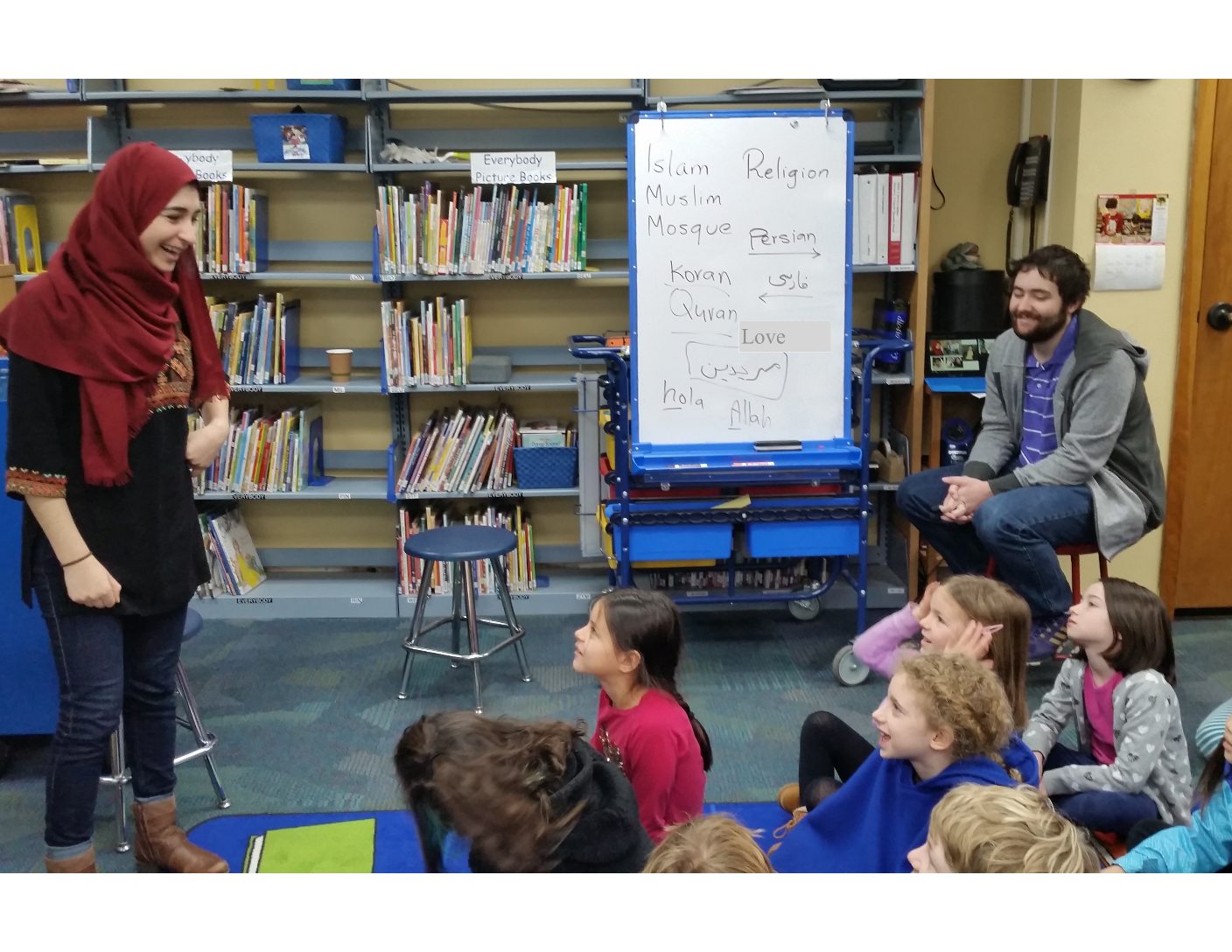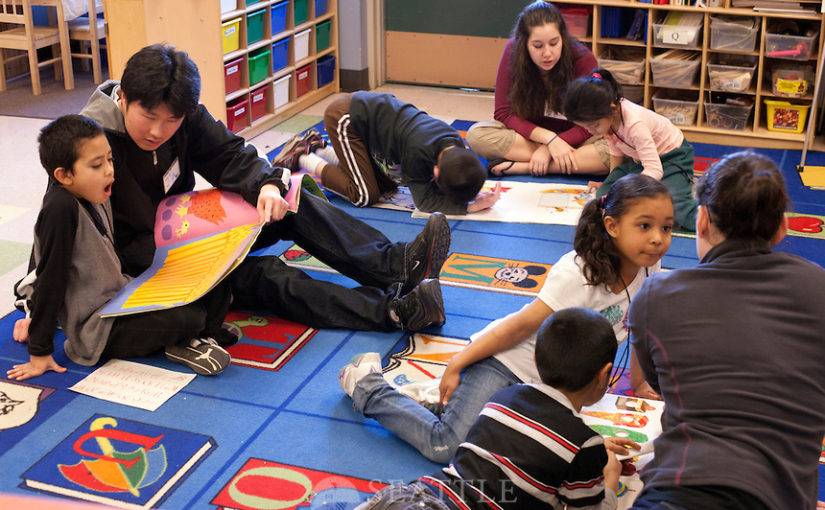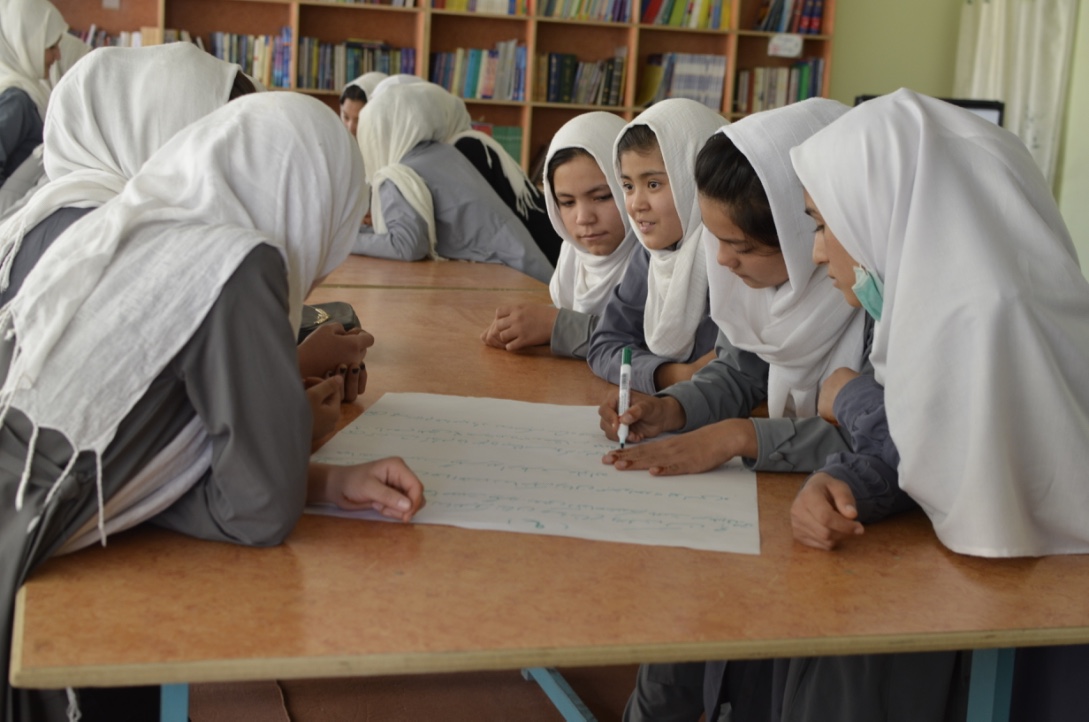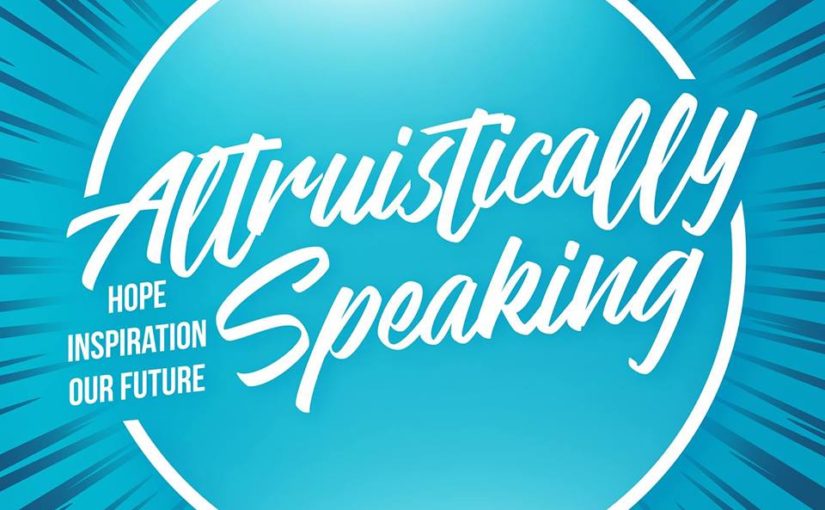By Malahat Mazaher
When people don’t know something, they fear it. One of the reasons for Islamophobia and the fear of Muslims is knowing very little or none at all about Islam/Muslims. Talking about Islam and having an interfaith and intercultural exchange can help resist preconceived notions, biases and discrimination against any group of people.
Because prejudices in the United States affects people everywhere, I would like to share with you how Sahar, as an organization that serves Muslim girls in Afghanistan, helps raise awareness about Islamophobia.
One of my responsibilities as a Sahar Fellow is to engage the Seattle community with our work as well as multiculturalism in general. I’ve spoken in different schools in Seattle. One of the schools I recently worked with is the Meridian school. I had 45 minutes with each class, from grades 1-5. In their small classroom and that library, we accomplished a lot.
I started the conversation about how people are from different races and ethnic backgrounds, they can have different religious beliefs or have no religious beliefs at all. While I spoke in general about Muslims, I spent most of the time discussing American Muslims in particular. I also talked about the diversity within Muslims Americans in the way they look like, the way they dress, and the way they practice their faith.With older students (grade 4-5), we discussed stereotypes and how these stereotypes not only affect Muslims in the US but across the world.
To my surprise, when I asked about Islam, many of the students had already heard about Islam. However, some believed that Islam is somehow something bad. When I asked a student from the 2nd grade where he heard it, he replied “ The presidential election.” But, as you read this, please don’t lose hope – this was not the perspective of all the students. Some students were aware that people who practice Islam are treated unfairly.
In order to familiarize them with ordinary American Muslims, I shared this video. I also shared stories of American Muslims to give them a view of the struggles they face. I shared Hebh Jamal’s story, 15, from Bronx NY, who instead of being busy with normal teenage concerns like homework, clothing, or hanging out with friends, has had to struggle with the growing anti-Muslim sentiment, adjusting her routines to avoid bullying and worrying about how she appears to the rest of society.
Hebh says, “If a Muslim hasn’t been called a terrorist in middle school, lower school or high school, then they’re probably in a really great school — and I’m happy for them! I find myself coming home, and my parents say: ‘Why are you so tired? What did you do?’ And I say, Absolutely nothing. You feel like the whole world is against you, she added. It’s exhausting.” (NYT)
We talked in depth about this story and how the students felt about it. By the end of the class, I could see and feel that these students were realizing that there is nothing out of the ordinary about Muslims. Muslims could be of any race, ethnicity, and language. They just never knew that such things could be true about Muslims.
Through all my experiences of interfaith and intercultural work, the lesson I learned is that unless we talk about issues and learn about them, it is not easy to get over the fear of the unknown, the stereotypes, and Islamophobia. Again, prejudice and discrimination here affect people everywhere else and vice versa.


